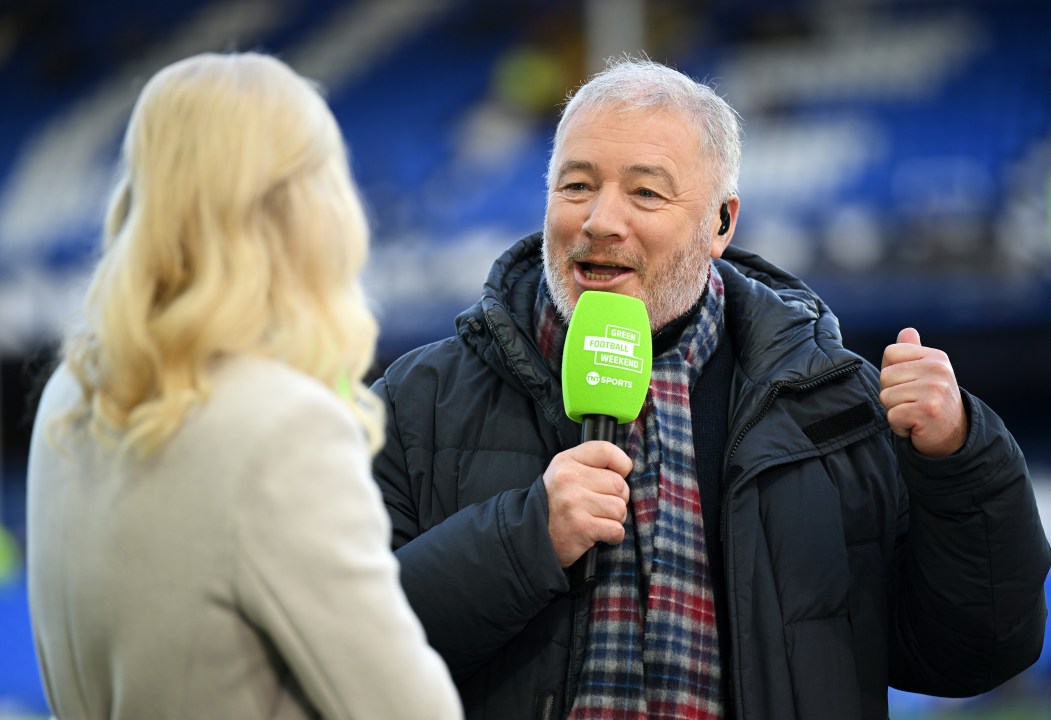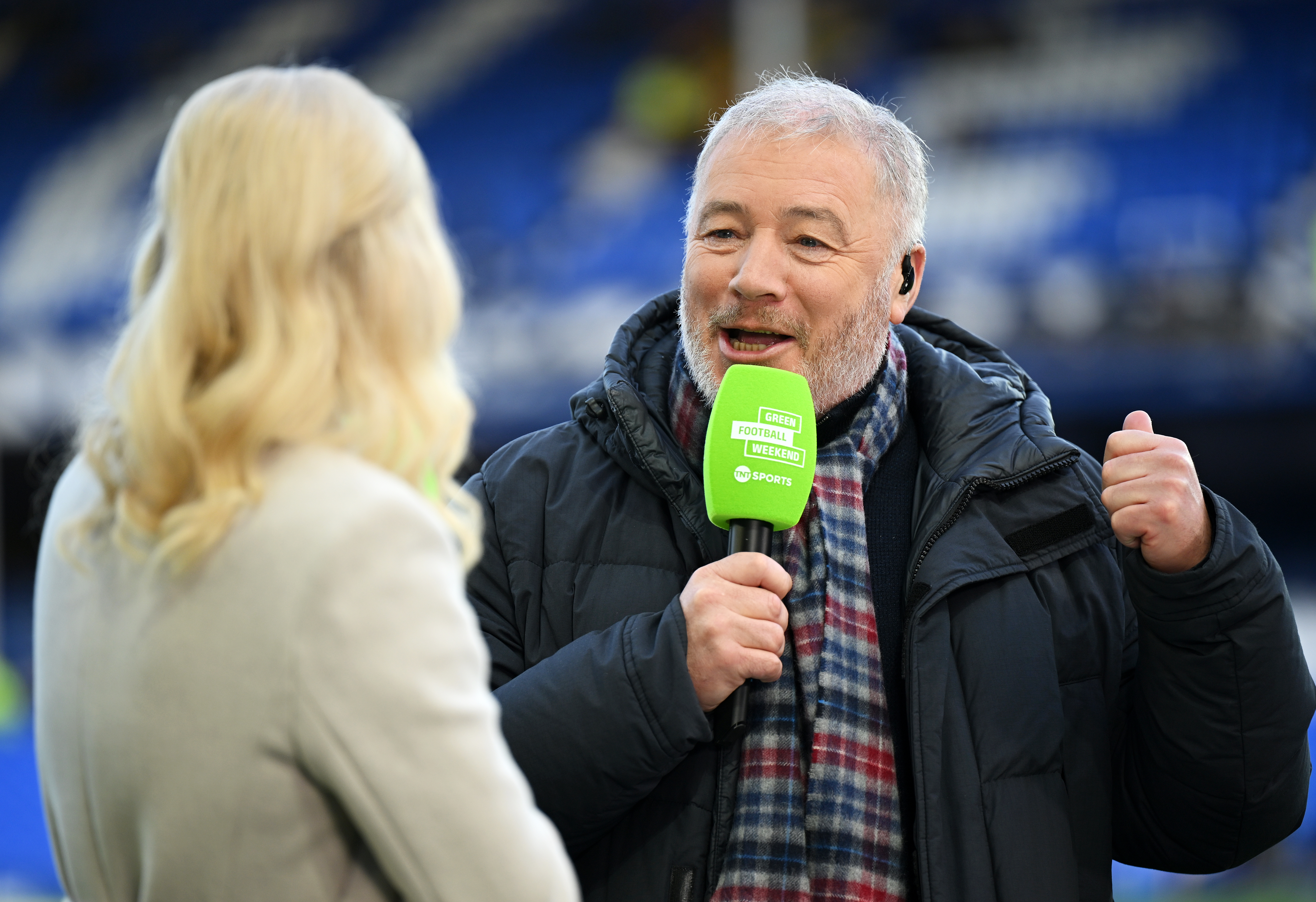It was the most dramatic moment of the whole football season. Having trailed 3-0 to the millionaires of Manchester United in their FA Cup semi-final, lowly Coventry had bravely fought their way back to 3-3 and extra time. And now, in the last minute of that extra time, they had broken away to score an incredible winner.
Or had they? Immediately after Victor Torp’s shot beat Onana, and the sky blue end of Wembley erupted into pandemonium, the ITV broadcast footage rewound to the critical moment – when the defence-splitting pass was made that led to the goal. So what did the designated expert think at this critical moment? ‘He’s onside,’ said Lee Dixon, assertively.
Instead of expertise and insight we get performative clownishness
The confidence with which he stated this puzzled me because, looking at the same pictures, my immediate impression was that he was marginally offside, not on. But Dixon was not to be dissuaded. ‘He’s onside,’ he repeated. It was only when the VAR review began to drag on that Dixon’s certainty waned: ‘Actually he may be just offside.’
And so it was to prove – it wasn’t a goal. Dixon’s reaction to this twist? ‘Just give him the benefit of the doubt’. Amazingly, the refereeing team didn’t feel inclined to indulge in such charity. Instead the game went to penalties, which United won, only for their general ineptitude to bring renewed calls for their manager, Erik ten Hag, to lose his job regardless.
But for me, if anyone should be sacked over the events of last Sunday, it’s Lee Dixon. Perhaps that sounds unfair. Dixon isn’t noticeably worse than most of the other retired former players out there working as pundits on TV or radio. They are uniformly terrible. We call them ex-pros which is fitting because they have lost any sense of professionalism.
For me, the worst of all, is Ally McCoist. This is because his opinions are not only inane but are frequently repeated: ‘That was a terrific save. That was a terrific save, Sam’; ‘Tomiyasu loses his bearings. He loses his bearings.’ It’s as if he’s modelled his punditry on Fred Elliott from Coronation Street.
While football itself has become radically professionalised over the last 30 years, with players now having every aspect of their lives scrutinised and overseen by experts, the former players who provide supposedly expert analysis remain untroubled by any drive to improve. They are the equivalent of those players in the 1970s who turned up at training still drunk from the night before. Indeed their opinions frequently carry all the weight and authority of a random bloke in the pub: ‘He’ll be disappointed with that’; ‘He’s got to hit the target from there,’ and so on.
You would hope that the pundit would aspire to an encyclopaedic knowledge of the game and have supportive stats at their fingertips. But in fact they frequently seem to not even grasp the latest tweaks to the rules. I even heard one recently suggest that a referee should electively go and check his own decision on a pitch-side monitor – and when informed that the rules don’t allow for this, instead of being contrite at his own howler, was outraged at the rules.
Instead of expertise and insight we get performative clownishness – ‘you won’t believe what Jamie Carragher said to Gary Neville about the Man U offside’ – as if they were discussing wrestling rather than the beautiful game. This tendency reaches its nadir with Micah Richards, who appears to believe he has a future in stand up. Veteran sports writer and editor Mick Dennis summed the issue up for me:
Not knowing the laws is endemic. It actually comes from one of football’s strengths: that it is basically a simple sport. Kids literally start playing with jumpers for goalposts. And then you pick up bits and pieces of the rules as you go along, but a lot of what is learned this way is wrong – including referring to ‘rules’. But nobody is taught the Laws of the Game – except trainee referees.
What would Pep Guardiola make of all this if he were in charge of punditry, instead of Manchester City? He’d professionalise them, of course. He’d send them on media training courses. He’d send them on refereeing courses. He’d make them study. He’d assess their output and drop the ones who lacked expertise.
Prior to the Coventry fiasco, the punditry incident that most riled me this season came when watching my own team, West Ham, in the first leg of their European tie against Bayer Leverkusen on TNT. Lucas Paquetá was given an early yellow card for a reckless tackle. Robbie Savage, co-commentator, suggested that David Moyes might be wise to take him off in case he then got a red. Then he then said it again. And again. By half time, he’d made the same point some seven times – even though it was perfectly obvious it wasn’t going to happen, as indeed it didn’t. And he made almost no other points about anything despite the multiple subplots unfolding on the pitch. I watched the second half on mute – what this meant in lost atmosphere was more than made up for by the absence of Savage’s whiny, not-for-radio voice and banal repetition.
A few weeks earlier I could only find the Wales vs Poland Euros play-off game on the S4C channel – with commentary in Welsh. This seemed odd at first but I soon realised I preferred it – all the crowd noise and atmosphere but none of the annoying half-baked opinions. Perfect.








Comments